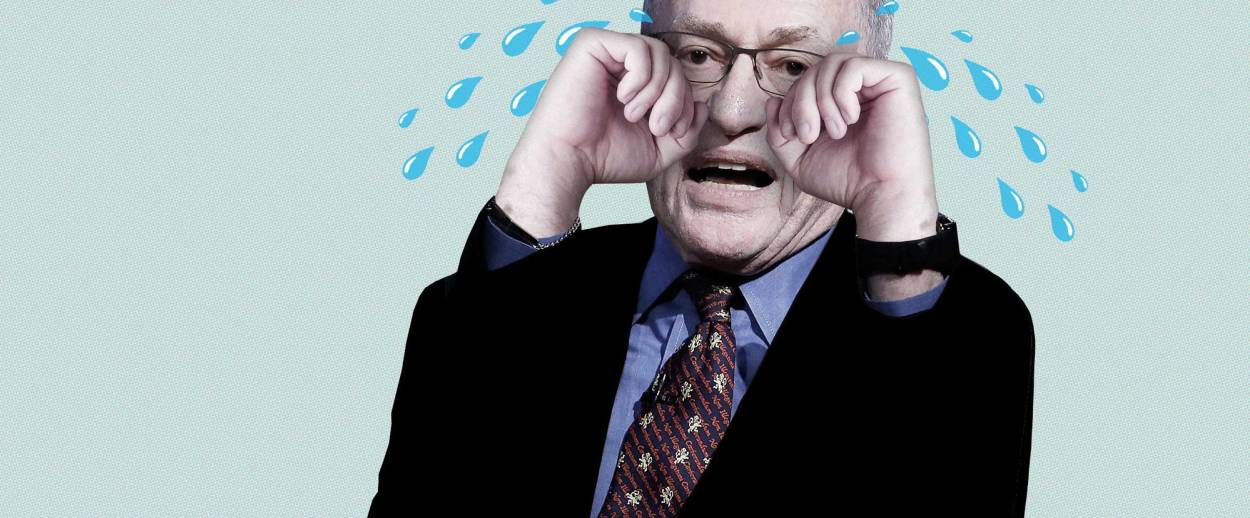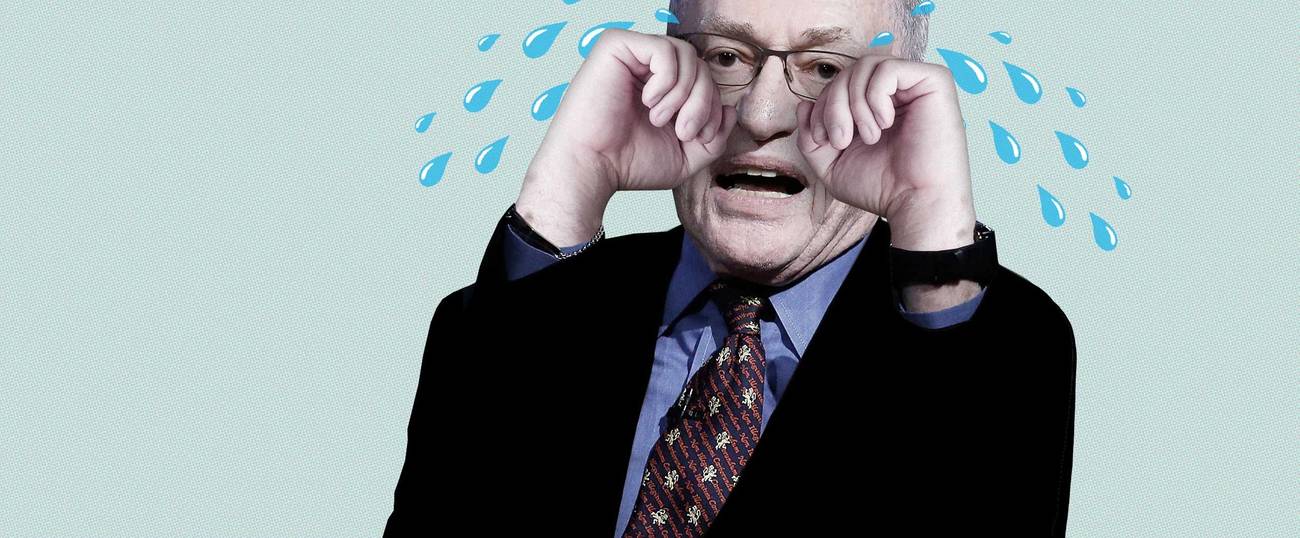For Alan Dershowitz, a Lesson in Contemporary Liberalism
The left these days is no more than a feeling, and feelings change




Of all the news that was fit to print last week, one story captivated the imagination of our commenting class: Alan Dershowitz’s lament, in a piece for The Hill, that he was no longer welcomed at dinner parties on Martha’s Vineyard, where he spends his summers, because of his defense of President Donald Trump. “I never thought I would see McCarthyism come to Martha’s Vineyard,” lamented the celebrated lawyer, sending journalists into paroxysms of opinionation. Some saw Dershowitz as a preening prattler who cried foul at the first hint of criticism. Some hailed him for his principled defense of his liberal convictions, even when these convictions meant defending the man liberals most reviled. Some went meta and blasted their colleagues for caring at all, asserting that l’affaire Dershowitz was, like so many presidential tweets, just an exercise in distraction.
All were wrong.
To understand why Dershowitz’s cri de coeur matters—why it’s what a certain sort of old-fashioned liberal might call “a teachable moment”—it helps to step away from the front porch of the Chilmark General Store, where the summering Dershowitz was greeted, until recently, with nothing but bonhomie, and follow the lawyer to his childhood days, as recounted in his best-selling memoir, Chutzpah. Summoned by the principal of his Orthodox yeshiva, the young Alan was delivered a summary judgment: “You’ve got a good mouth, but not much of a yiddisher kop,” the principal said. His advice to Dershowitz was to “do something where you use your mouth, not your brains,” which, to the pious educator, meant becoming either a lawyer or a Conservative rabbi.
It’s an amusing anecdote, and it’s delivered with the sort of light touch that makes clear the author’s pride in being called a pushy loudmouth; why else name your book Chutzpah? But skip just a few chapters ahead, and you’ll witness Dershowitz rise with indignation when the same description, more or less, is applied by the gentilic proprietors of the nation’s white-shoe law firms, queasy to admit his sort into their pristine ranks.
Why, exactly? If you, like Dershowitz, are the champion of an approach—not in of itself particularly objectionable—arguing that we each have our distinctive, divergent dispositions and that we ought to tolerate each other all the same, it’s perfectly plausible to conclude that your detractors have a right to the very same liberty. If you believe, as Dershowitz does, in the right to be chutzpahdik, why not embrace also the right to reject chutzpahdiks from making partner? Doesn’t the mumbling WASP have the same right to chart his course and pursue his truth as the loquacious Jew? Mightn’t he love his own kind and prefer their company as Dershowitz clearly—and passionately, and truly, and wonderfully—does that of his fellow Jews? Not if you ask Claus von Bülow’s attorney, who frequently accuses those goyim who deliver the same judgment as his old principal of being unfairly biased.
But Dershowitz isn’t the problem. He’s the symptom. The truth he wishes to teach us is as profound as it is too often hidden: In recent decades, much of American-Jewish liberalism has revolved around not a set of principles but a host of social preferences.
What, after all, does it mean these days, being a liberal American Jew? Asked, say, 15 years ago, the question would’ve seemed almost absurd. Someone at your dinner party would’ve taken you aside and told you that liberal American Jews were, well, liberal when it came to domestic policy questions—pro gay rights, say, or anti guns—while still strongly supporting Israel. That was before the Iran Deal, before intersectionality, before Black Lives Matter singling out the Jewish state for calumny, before BDS—before, in short, so much of contemporary liberalism became consumed by drives that many Jews, implicitly or otherwise, found anathema. Seeking a way to express their displeasure, most liberal American Jews realized that they lacked one, because their political identity was never rooted in the densely packed soil of unshakable convictions; instead, it was a collective way of feeling that was regulated, sustained, nurtured, and rewarded in perfectly pleasant gatherings of like-minded people.
In a way, this is true of more or less every other group of Americans. Politics isn’t a science; it’s a way of being in the world, and as such it invites you to seek the company of those who choose to be in the world just like you. Most people realize that. They also realize that any arrangement predicated on emotions is likely to be volatile. Today, the group pledges its allegiance to Miley Cyrus; tomorrow it may be Selena Gomez. When the winds of change blow, you’re free to blow with them or hold on to the old ideas, in which case you’d better find new friends.
These insights ought to be obvious to anyone who has lived through, say, the eighth grade. Somehow, they eluded Alan Dershowitz, who still speaks of principles and convictions as if they’re the heavenly bodies that can help us, by virtue of faith, transcend our fundamental humanity.
They can’t. We change. Which isn’t to suggest that core ideals and principles aren’t possible or even advisable: They are. But if you’re serious about your beliefs, you oughtn’t to treat them like pristine, disembodied abstractions. You should put them to the test, and be ready to course-correct according to what they teach you. And if your friends cannot abide, well, it may be time for new friends.
I spent last week on Martha’s Vineyard. I enjoyed a hummus sandwich and a Snapple at the Chilmark General Store. I was moved, like I am with each visit, by the island’s wild beauty and by its quiet charms. I struck up conversations with folks on the beach, with servers in restaurants, with neighbors who stopped by to drop off some towels. Unlike Alan Dershowitz, I don’t think I heard anyone say one word about Alan Dershowitz, or about politics, or even about Donald Trump. I did, however, hear a lot of talk about ice cream, about lobster rolls, and about the Red Sox. Maybe it’s just the social circles in which I hang out.
So, hey, Dersh, maybe it’s time to make some new friends on the Vineyard—or maybe from Flatbush.
***
You can help support Tablet’s unique brand of Jewish journalism. Click here to donate today.
Liel Leibovitz is editor-at-large for Tablet Magazine and a host of its weekly culture podcast Unorthodox and daily Talmud podcast Take One. He is the editor of Zionism: The Tablet Guide.